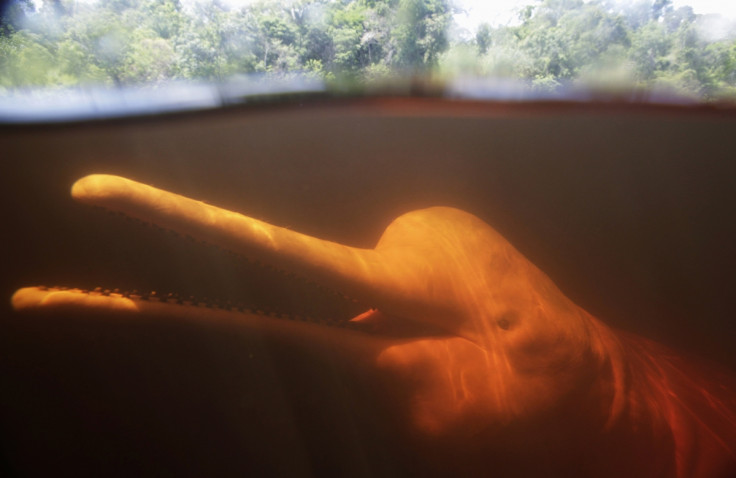New Brazilian River Dolphin Species Discovered in Araguaia River

Scientists from the Federal University of the Amazonos have discovered a new species of river dolphin for the first time in over 100 years.
Experts from the Federal University of Amazonas discovered the new species in the Araguaia River basin in Brazil. In information published in Plos One, scientists revealed the dolphins shared molecular and morphological similarities with a species that existed in the Amazon around 2.08 million years ago.
The new species has been named Inia Araguaiaensis, after the basin in which it was found. They also also known as Botos. However, DNA testing and a study of the mammals revealed a third type of river dolphin - proving there are multiple species in the area.
The discovery and study was led by Tomas Hrbek and his team, including Nicole Dutra, Waleska Gravena, Izeni Pires Farias.
River dolphins are some of the rarest and most endangered vertebrates, and are relatively unprotected. Three of the four known species have been defined as "threatened" on the Red List, published by the International Union for Conservation of Nature.
Their habitats are destroyed by hydroelectric dams and their food supply is depleted by overfishing. In some areas, dolphins are hunted for food, bait or to be sold to aquariums. As a result their numbers are far fewer than other species, such as bottlenosed dolphins.
The first river dolphin was described in 1918 as the species Lipotes Vexillifer, otherwise known as the Chinese baiji. It was classified as extinct in 2006. Over fears the Inia Araguaiaensis will follow the same fate, the report called for them to classed as "vulnerable" on the IUCN list.
The report read: "This discovery highlights the immensity of the deficit in our knowledge of Neotropical biodiversity, as well as vulnerability of biodiversity to anthropogenic actions in an increasingly threatened landscape."
Recently, Japanese fishermen from the town of Taiji have been condemned for slaughtering dolphins. According to tradition, the hunt will cease at the end of February, yet there has been a global outcry against the practice which protesters have called inhumane.
© Copyright IBTimes 2025. All rights reserved.






















